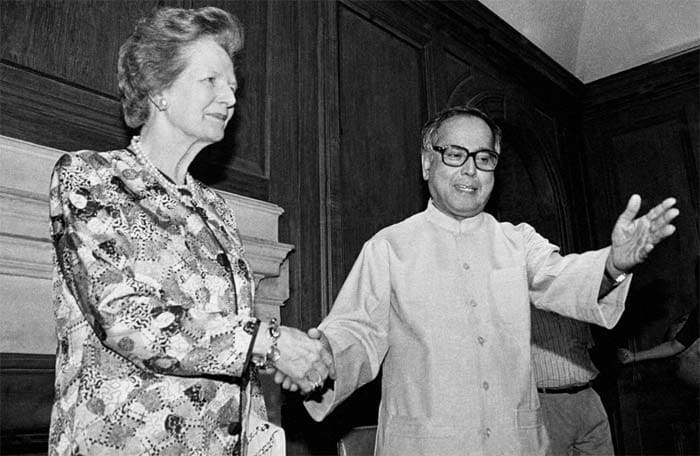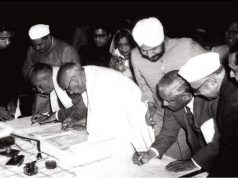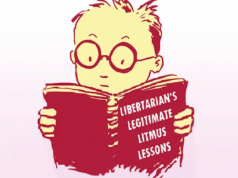On her visit to India in 1994, the apostle of free-market gospel Margaret Thatcher revealed her take on implications of economic freedom for prosperity. In a keynote speech delivered in Bombay, she stressed upon the necessity of economic freedom; the need for fiscal prudence; the limited role of the state; and move towards privatisation. While extolling the Indian peculiarity of having both democracy and capitalism, she also pointed out the tension between the two and its implications for India’s economic trajectory ahead.
Below is the full keynote speech, published by the Forum of Free Enterprises in 1995 in the booklet form –
Economic freedom is real freedom. Just as coercion exercised on economic grounds is no less real coercion.
Free enterprise works because, like democracy, it gives real power to the people. Indeed it can be described as economic democracy. It limits the power of government, by maximizing the power of the people. It removes industry and management from the hands of the state by selling off companies and business to those who will buy them, mostly through the stock market. Free enterprise capitalism is a necessary – though not a sufficient – condition for political democracy itself. Perhaps we in business have been too slow to point out that capitalism is therefore not only about material things, it is about the human spirit and its creativity. In seeking to liberate people from poverty and servitude it is the business ethic in action which is the cutting edge of progress.
The Role of the State
The role of the State should be limited but strong to do those things which only governments can do. First government should be strong to keep the finances and the currency sound.
We need to preach and practice the wisdom of thrift as a virtue in itself, and of high savings as necessary for high investment and that public spending must be strictly limited. This is common sense. Every businessman and housewife knows that they have to live within their income. The laws of arithmetic are not suspended merely because you are working in billions or because you are in government. But these things do not come naturally to all politicians. Interest groups are very strong and vociferous, particularly in the public sector, and there is a constant temptation to increase public spending to appease them or to postpone awkward decisions.
Privatising – Transforming Britain
A system like state control which is fundamentally bad because it denies people the power to choose and the opportunity to bear responsibility for their own actions, can’t be made good merely because it is run by ‘clever’ people who make the arrogant assertion that they ‘know best’ and that they are serving the ‘public interest’ – an interest which of course is determined by them.
Privatisation shrinks the powers of the state and free enterprise enlarges the power of the people.
Asia – Great Expectations
The world has never seen such a rapid economic expansion as it is witnessing today. The age of automation has been even more radical than the age of mechanization. ‘Smart’ machines now transfer technology instantaneously from one country to another. Development which used to take years can be achieved in months.
Hence the economic miracles in the countries of Asia, both large and small. A hurricane of change has swept across Asia, carrying millions out of poverty and bringing new hope. The people of the Asia Pacific are out-stripping much of the rest of the world in growth, investment, new technology and trade.
Today the Asia Pacific region has the highest growth rates in the world in spite of the world recession.
India – Looking Ahead
What does all this mean for India, for her place in the wider world?
Your influence and example are crucial to the future. While Russia has democracy but struggles for economic reform, China has economic reform but resists democracy. But India has the advantages of both economic reform and an established democracy.
In some ways this may make reform even more difficult as every move is publicly debated and sometimes the arguments are distorted. Nevertheless, once the decisions are taken they are all the stronger because of the openness of parliamentary democracy.
Also you have large, enterprising middle-class, with an enviable capacity to exploit the advance of science and to attract the requisite investment. Add to that your’ international trading links and it would seem from the outside looking in, that your success is assured.
The original booklet and the full text of the speech could be accessed here.
IndianLiberals.in is an online library of all Indian liberal writings, lectures and other materials in English and other Indian regional languages. The material that has been collected so far contains liberal commentary dating from the early 19th century till the present. The portal helps preserve an often unknown but very rich Indian liberal tradition and explain the relevance of the writings in today’s context.
Post Disclaimer
The opinions expressed in this essay are those of the authors. They do not purport to reflect the opinions or views of CCS.






